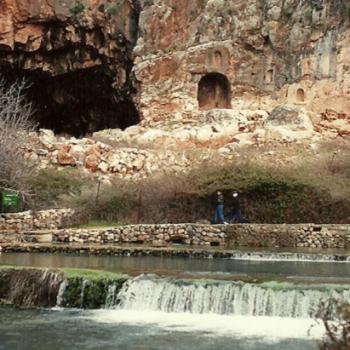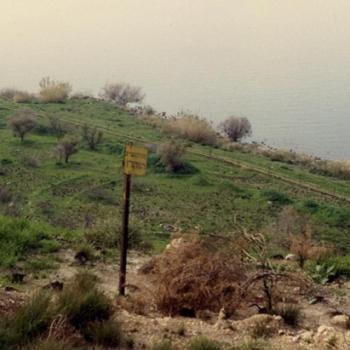Let’s take a look at the strongest objections to the claim set forward in my previous post: that Jesus’ resurrection is the bedrock for what we believe (http://www.patheos.com/blogs/tomhobson/2018/03/the-bedrock-for-what-we-believe-jesus-resurrection/).

Jesus’ resurrection has survived even the toughest attempts of critics to explain it away. For me, the toughest issue is: How do we know that Jesus’ body wasn’t stolen and destroyed without a trace? That’s the Number One alternative. Unauthorized removal of the body is the automatic conclusion to which all of the earliest persons on the scene jump. The vast majority of scholars are agreed that the eleven disciples are too dispirited and too fearful to pull off such a heist. Men who ran away from their Master and denied they ever knew him? The idea has never crossed their minds.
But what about some other joker out there? What about Joseph of Arimathea, someone who has a motive to vindicate Jesus, unbeknownst to the other disciples? Couldn’t such a deceiver remove Jesus’ body and burn it or feed it to the dogs? Again, even most unbelieving scholars do not go there. The consensus is that in that time and culture, it was unthinkable that anyone would steal the body of a famous rabbi and trash it. What’s point in stealing a dead Messiah and claiming he’s alive, while sitting on evidence to the contrary in your backyard? The only conceivable kind of person who would do this would be someone who had no sympathy for Jesus or his movement, but who just wanted to poke the chief priests in the eye. I doubt such a person ever existed.
What do we do with the famous claim made by John Dominic Crossan that crucified criminals were denied burial, and that Jesus would have been thrown into a common grave and eaten by dogs? The Roman writer Tacitus does say that under Tiberius, “people sentenced to death forfeited their property and were forbidden burial.” However, we have found a crucifixion victim buried in a family tomb, with the nail still thru the ankles. Both Philo and Josephus give us cases of Roman governors giving permission to bury an executed criminal. Special permission appears to have been given for Jesus as well.
What about supposed contradictions in the story? Did they see one angel or two? The fact that Mark only mentions one doesn’t rule out the presence of two. Such apparent rough edges don’t disprove the story; they are proof of their early, eyewitness character. Later accounts would have ironed out the difficulties. Do all the details line up from the witnesses of Columbine or 9/11? No, but we have no doubt these events really happened. Events like Nero starting the fire in Rome or Hannibal crossing the Alps have huge contradictions between the sources, but nobody doubts they really happened. The accounts of Jesus’ resurrection are far easier to reconcile.
The evidence is there. We have a positively identified empty tomb, plus empty grave clothes lying there, as if the person had engineered a Houdini-style escape. Plus we have the multiple appearances of the risen Jesus to witnesses who were totally disinclined to believe them. We have both his absence from the tomb and his presence in the room that night. How do we know it’s really him? His absence from the tomb. How do we know he’s not stolen or lying somewhere else? His presence in the room. One confirms the other. The case is compelling.
Jesus’ resurrection validates the whole of what we believe. If Jesus truly rose from the dead, it becomes a lot easier to believe that he walked on water, raised the dead, and was conceived by a biological miracle. The whole rest of the Bible becomes much easier to believe, including parts where all we can do is accept them on faith, including details and commands that we find hard to accept. What happened in that tomb on that day so long ago becomes the bedrock for all that we believe.
Do we let Jesus’ resurrection inspire us with confidence that our faith is not just true for us, that it is not just our own private pet truth, but that it is truth that the whole world needs to believe, truth that puts the lie to every competing claim? Do we let the Good News of Jesus’ resurrection inspire us to sacrifice more of our material treasures, so that more people who have never heard might come to hear that Good News? Do we let Jesus’ resurrection slice our pain of grief down to size?
For me, Jesus’ resurrection is already an anchor for my soul; it gives me solid bedrock on which I can plant my faith. But it makes me nervous to think how different my life might be, if I believed that Jesus has risen, not just in my head, not just with intellectual conviction, but with every ounce of my being. How much more sacrifice would I be willing to make? How much more selfless would I be? How much more would I be willing to devote each hour of my energy to Christ alone? How much less would I find myself chasing bogus dead-end values? How much less would I surrender to bitterness or despair?
How can anyone not be excited about what Christ has done for us? How can anyone yawn about it? Without Easter, we can forget about Christmas – there’s nothing to celebrate. The resurrection is the reason for all we have to celebrate. People get excited about the Superbowl, or the Academy Awards. That’s OK. But nothing else can compare to the excitement that Jesus’ resurrection calls for. We can shout “Hallelujah!” with his friends on the scene that day. We can grumble, “Oh, (expletive deleted)!” with his enemies. But if we understand what the resurrection really means to us in the here and now, no one can possibly say, “So what?”














